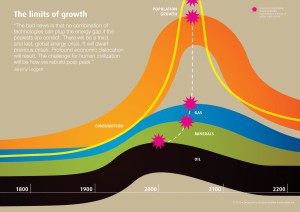 This World Environment Day Nisarg Kamdar sheds light on the energy crisis and how a world dependent on oil is headed towards yet more trouble
This World Environment Day Nisarg Kamdar sheds light on the energy crisis and how a world dependent on oil is headed towards yet more trouble
What is the unifying trait between the Second World War and the Neo Cold War over the crisis in Ukraine? It’s the oil, stupid!
Geopolitical shadow boxing over energy resources becomes more pronounced as energy security has become an issue of national security. There is another Great Energy Game being played out between the western powers and Russia, and China as they attempt to secure their long term energy future. Energy security is crucial for developing nations like India and China. With a burgeoning population there is need to stimulate steady economic activity to create opportunities, lest the unemployed spill onto the street in protest against the government.
And thus, in the month of the World Environment Day, it is but appropriate that we seek to understand the major energy challenges facing mankind in the 21st century.
Oil and its peak
Dr Marion King Hubbert, a geologist, who back in 1950 while working for Shell, predicted that oil production in the United States will peak between 1965 and 1970. He suggested a bell shaped curve which peaks and then declines. Following the success of his prediction, attempts were made to extrapolate the curve to predict the peak in global oil prediction. This expected peak in global oil production is referred to as Peak Oil.
Put in simple terms, since oil is a finite, non-renewable resource, the rate of oil production will stop growing once we exhaust about half of the original oil resources. The production would thus peak and embark on a terminal decline from there on.
Oil companies traditionally start with extracting conventional oil – oil that is easier to reach, near the surface, under pressure and with minimal sulphur content, thus cheap to refine. This has fuelled the age of cheap oil. Unconventional oil is technically more difficult to extract and refine since oil fields are set to be offshore and farther off from markets. While oil production has risen to 90 million barrels per day, the world’s conventional oil fields are in terminal decline. In fact, conventional oil production is said to have peaked in 2006.
Exotic production or unconventional oil such as shale and natural gas liquids are expected to compensate the decline in cheap oil. However, not only is such ‘fracked’ oil very expensive, production from fracked wells drop quickly, so there is constant need to drill new wells to maintain production. Furthermore, such oil fields reach a point where they’re no longer economically viable since it takes the energy of a barrel of oil to extract a barrel of oil. Besides, they create disastrous environmental and water supply problems.
Energy for India
Oil so far has been much cheaper than any other fuel supply. India’s oil imports are expected to more than triple from 2005 levels by 2020, rising to 5 million barrels per day. Most of the world’s modern industrial transport, agricultural and industrial systems are dependent on the availability of cheap oil. There is a chance that in absence of this, the world could slip into a period of ‘glacial deindustrialisation.’
Peaking of World Oil Production: Impacts, Mitigation and Risk Management, a US Dept. of Energy commissioned study grimly notes that “as peaking is approached, liquid fuel prices and price volatility will increase dramatically, and, without timely mitigation, the economic, social, and political costs will be unprecedented.” Such a trend would deal a catastrophic blow to India’s economy and sink the country into a maelstrom of chaos.
However, there is now an impetus to look into the alternate renewable energy market. At present, the development of alternate fuel technologies is hostage to government dole due to cheaply priced oil. A steadily rising oil price will make alternate fuel technologies competitive and encourage investors to put in billions towards research of such technology.
Punching holes
Peak oil is vociferously disputed by a section of the Middle Eastern nations, oil producers and public at large. They maintain that new resources have been found which forestall any peak oil event. They believe that new oil resources will continue to be discovered at paces which outstrip demand. Oil companies point to large reserves at the US outer continental shelf, which is estimated to hold 100 billion barrels of oil and natural gas. Shell has also started extracting oil from unconventional sources like oil sands of Canada which are believed to contain one trillion barrels of oil.
Lost decade
In many ways countries have failed to recognise the graveness of the fate that awaits us if we continue down this path. In this light one can only marvel at Cuba’s success at tackling the peak oil crisis. Cuba faced its peak oil in 1990 when the Soviet Union collapsed and Cuba lost its trading partner. Making virtue of the adversity, Cuba consciously moved towards sustainable organic agriculture, decreased use of vehicles and adopted a new approach towards health, diet and industry. While India at this critical juncture in its economic development may be unable to implement all the initiatives, we must spur into action to plan for the future, lest we get condemned to the past.
Volume 3 Issue 12


























